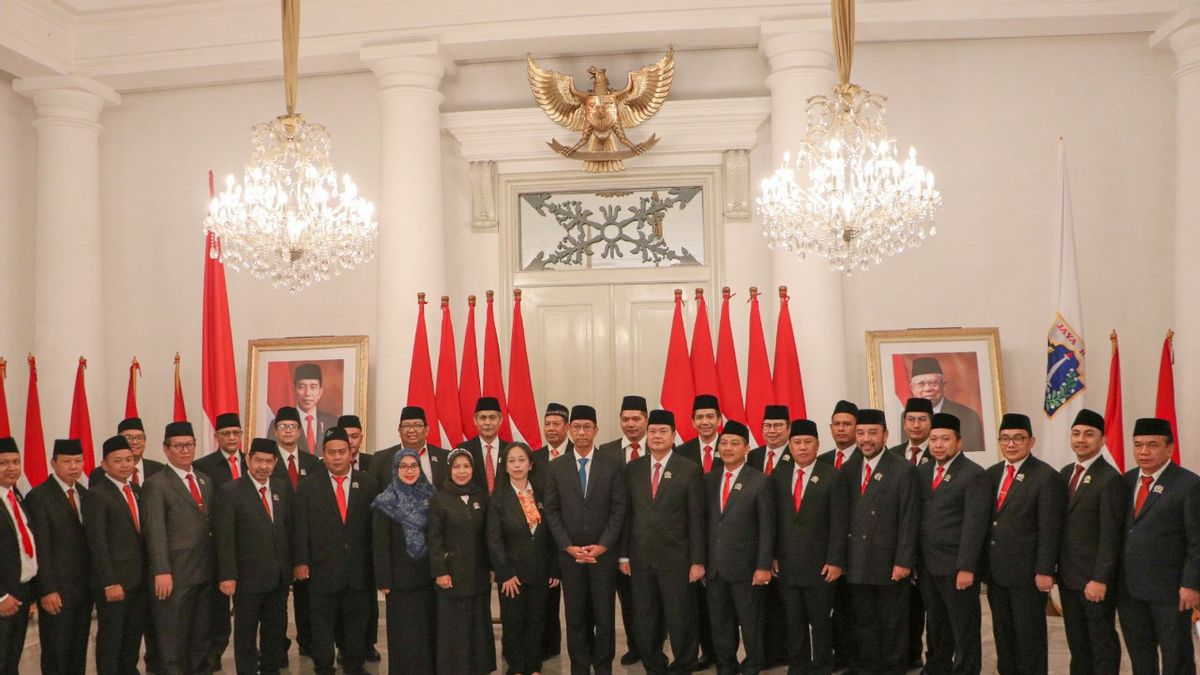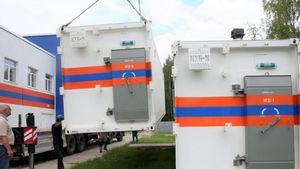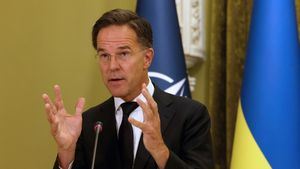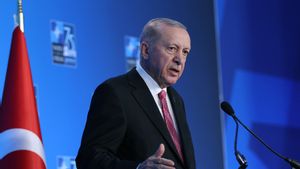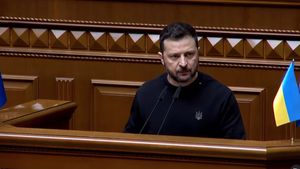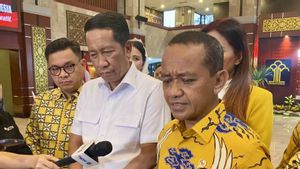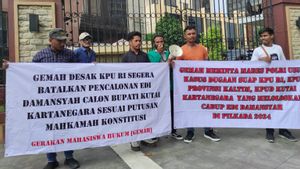JAKARTA - Acting Governor of DKI Jakarta Heru Budi Hartono inaugurated 31 members of the DKI Jakarta Wage Council for the 2022-2025 term of service, at Balai Agung, DKI City Hall, Central Jakarta.
Members of the Wage Council consist of elements of the government, employers' organizations (APINDO and KADIN), Federation of Labor Unions, academics, researchers and the Central Statistics Agency (BPS) who are competent people who represent expertise in their respective fields.
In this inauguration ceremony, Heru asked the Wage Council to provide suggestions, inputs, and considerations related to the formulation of policies in the field of wages in DKI Jakarta which will later build harmonious relations between the three parties, namely the government, employers, and workers.
"To our fellow members, we have hope for all of them, because they have a big task, as well as a big responsibility as a bridge between the rulers and workers. Also in realizing a harmonious relationship between the government, employers and workers," said Heru, Wednesday, October 26.
In addition, Heru also advised the Wage Council to have an interactive dialogue with workers and employers, so that effective communication is formed and is symbiotic for mutualism.
"That way, the decisions that will be made will collect the aspirations of all parties, both from workers, employers and local governments," said Heru.
"Finally, I also don't forget to thank and appreciate the members who have worked in the previous service period, for their dedication and contribution of thoughts in dealing with wage problems in the city of Jakarta," he continued.
For information, based on Government Regulation Number 36 of 2021, the duty of the Wage Council is to provide advice and considerations to the Governor in the context of:
1). Determination of the provincial minimum wage (UMP);
2). Determination of the district/city minimum wage for the proposed district/city; and
3). Prepare the ingredients for the formulation of the development of the wage system.
The English, Chinese, Japanese, Arabic, and French versions are automatically generated by the AI. So there may still be inaccuracies in translating, please always see Indonesian as our main language. (system supported by DigitalSiber.id)
Most Popular Tags
#Prabowo Subianto #golkar #Pilkada Dki #online gambling #Mount Lewotobi malePopular
20 November 2024, 05:00
20 November 2024, 07:08
20 November 2024, 01:08
